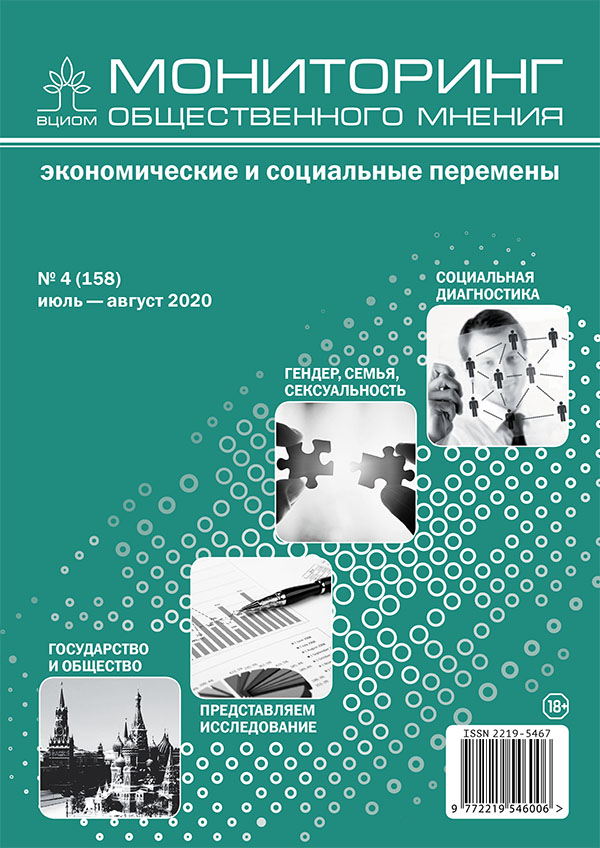Implicit Factors and Voting Behaviour Inconsistency: From Theoretical Concept to Empirical Phenomenon
DOI:
https://doi.org/10.14515/monitoring.2020.4.1584Keywords:
electoral behavior, electoral forecast, prediction of behavior, GATA, electoral polls, consistent attitude, behavior factorsAbstract
Several recent elections and referendums were marked by a dramatic failure in pre-election prediction based on large-scale surveys among voters. As a reaction to public anger and discontent among politicians alternative strategies (prediction markets, Implicit Association Test (IAT), expectation-based forecast, etc.) are being developed. The industry of election polling has also made progress: a number of studies have shown that a relatively low accuracy of forecasts was caused by inconsistencies in sample design and implementation. The present article considers another factor behind election forecast errors: insufficiency of data about the declared intentions needed to make an accurate prediction. For this purpose, the author introduces a tool called GATA (Graphic Association Test of Attitude) measuring implicit attitudes/intentions and proposes to add a “stream” of implicit effects to the usual Theory of Reasoned Action (TRA) and the Theory of Planned Behavior (TPB). According to the findings, implicit factors are an actual and clearly detected phenomenon; inconsistency in explicit and implicit attitudes/intentions is typical of many voters.
The present article aims to present this phenomenon. This will be followed by another article (Implicit Factors and Voting Behavior Inconsistency: From an Attitude to Behavior) in the next issue of the Monitoring of Public Opinion: Economic and Social Changes (2020, no.5) which will highlight behavioral effects of inconsistencies and the results of a combined use of implicit and explicit factors in the election forecast model.
Downloads
Published
How to Cite
Issue
Section
License
Copyright (c) 2020 Monitoring of Public Opinion: Economic and Social Changes Journal (Public Opinion Monitoring) ISSN 2219-5467

This work is licensed under a Creative Commons Attribution-NonCommercial-ShareAlike 4.0 International License.






